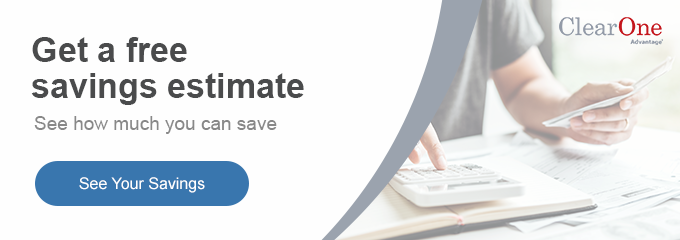
Getting a debt consolidation loan can be tricky. Like other types of loans, approval for a debt consolidation loan is dependent on factors like your credit score and debt-to-income ratio. When you are already struggling to pay down debt, you may not be able to get a debt consolidation loan that will really help you.
The problem with debt consolidation loans is that the approval process is often a catch-22 situation. You need the loan to work your way out of debt, but your debt impacts your credit score negatively, thus possibly preventing you from getting the loan you need. It’s frustrating, but there are other options if you can’t get a loan.
What Do You Do If the Lender Declines Your Loan Application?
When you can’t get a loan, your first step should be to find out the cause of the denial. Lenders will readily share such information. Also, the law compels them to make certain disclosures in this respect through a notice of adverse action. The cause of your denial is likely one or a combination of the following reasons.
- You have not established enough of a credit history. You have not borrowed and repaid enough to prove that you know how to handle debt.
- Your credit score is low. You may have defaulted on some loans in the past or missed payments on a current loan account.
- Your income is insufficient to meet the minimum requirements of the lender.
- Your lender cannot verify your income. You may have plenty of income, but if it results from an unverifiable source, it does not count toward your debt-to-income ratio.
- Your debt-to-income ratio is too high. You juggle more debt than you can reasonably pay off based on your verifiable income.
- You do not possess personal assets valuable enough to guarantee the loan.
- Various technical issues may also derail your loan application. Your lender may find the size of the loan unjustified, or you may have failed to submit a complete application, etc.
Be aware that in your notice of adverse action, your lender has to provide you information on your credit reports and on ways you can challenge the information in these reports, should you find them to be inaccurate.
The law covering your rights as a loan applicant is the Equal Credit Opportunity Act (ECOA).
Next, you need to address the cause(s) of why you can’t get a loan. To do that:
- Fix any errors in your credit reports.
- Earn more income.
- Build your credit.
- Pay off your debt.
Understand How Debt Consolidation Loans Work
Favorable debt consolidation loans for bad credit are so rare that the concept itself is almost an oxymoron.
To get a favorable debt consolidation loan, you need a good credit score. Lenders are not willing to hand more money to someone who is demonstrably irresponsible with debt. Thus, they ignore those who need such loans the most.
Debt consolidation loans for bad credit entail high interest rates and thus may not best suit your debt relief needs.
The qualifying requirements for a good debt consolidation loan are:
- A good credit score.
- A good debt-to-income ratio.
- A decent amount of home equity in the case of a secured loan.
Through a secured debt consolidation loan, you are putting essential assets such as your home or car on the line. You risk losing these assets if you fail to keep up with the payments.

A Debt Settlement Plan Can Help Accomplish the Same Goals as Debt Consolidation
Through a consolidation loan, debtors get lower interest rates, make a single payment per month, improve their debt-to-income ratio, make lower monthly payments, and pay off their debt within a reasonable time-frame.
A debt settlement plan accomplishes the same goals, outperforming debt consolidation in some respects. To understand how the two debt relief options stack up against one another, let’s make a head-to-head comparison.
| Debt Settlement | Debt Consolidation Loans | |
| Upfront Fees | None | Origination fees and transfer fees (if you opt for credit card balance transfer) |
| Financial Benefits | Short-term and long-term relief; forgiven debt | Lower/fixed interest rates |
| Qualification Requirements | Regular income; a minimum of $10,000 in unsecured debt | Good credit score, good debt-to-income ratio, home equity in the case of secured loans |
| Monthly Payments | Reduced, based on the renegotiation of debt | Dependent on the terms of the loan |
| Length of Program | 2-5 years | 2-5 years |
Your optimal path to debt resolution may not be through debt consolidation. Through debt settlement, you can achieve the same goals without running the risk of losing your essential assets. If you would like to discuss all your debt relief options, contact a ClearOne Advantage Certified Debt Specialist at 866-481-1597.
How much can you save through this debt resolution method? Get a free savings estimate.




